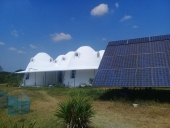
 7
7




 6
6




 6
6




 6
6




"The only thing...more expensive than education is ignorance."~Ben Franklin. "We can easily forgive a child who is afraid of the dark; the real tragedy of life is when men are afraid of the light." ~ Plato







 6
6




 7
7




 5
5




Josie Gritten wrote:Using rain water here, so I don't think it's that.
Maybe jostling could be a thing. I'll try a more gentle batch!
My ratio is 1/3 cup lime to 1 litre water.
"The only thing...more expensive than education is ignorance."~Ben Franklin. "We can easily forgive a child who is afraid of the dark; the real tragedy of life is when men are afraid of the light." ~ Plato
 8
8




 2
2




"The only thing...more expensive than education is ignorance."~Ben Franklin. "We can easily forgive a child who is afraid of the dark; the real tragedy of life is when men are afraid of the light." ~ Plato
 4
4




Country oriented nerd with primary interests in alternate energy in particular solar. Dabble in gardening, trees, cob, soil building and a host of others.
 2
2











 5
5




 7
7




"The only thing...more expensive than education is ignorance."~Ben Franklin. "We can easily forgive a child who is afraid of the dark; the real tragedy of life is when men are afraid of the light." ~ Plato

 7
7




Live, love life holistically
 7
7




 6
6




 6
6




$10.00 is a donation. $1,000 is an investment, $1,000,000 is a purchase.
 6
6




Real funny, Scotty, now beam down my clothes!
 6
6





|
Paper jam tastes about as you would expect. Try some on this tiny ad:
Learn Permaculture through a little hard work
https://wheaton-labs.com/bootcamp
|




